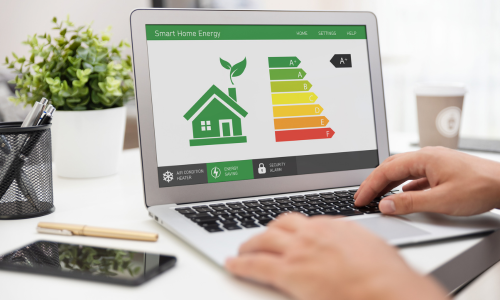
The UK rental market is set to see changes in energy efficiency regulations, but not in the way initially expected. The previous Conservative government had planned to enforce stricter Energy Performance Certificate (EPC) requirements by 2025, requiring all newly rented properties to have a minimum EPC rating of C. However, these plans were scrapped in September 2023 due to concerns that landlords would face excessive financial burdens to meet the short deadline.
Understanding the EPC changes
In September 2023, the Conservative government abandoned the proposal to enforce EPC upgrades by 2025. The decision was made due to concerns that landlords would be required to undertake costly energy efficiency improvements within a short time frame.
The Energy Secretary has since pledged to take action to address past shortcomings in energy efficiency regulations and has committed to consulting on new measures by the end of the year. The revised proposal will focus on improving energy efficiency standards across both private and social rented properties by 2030.
As it stands:
- Private rented homes can still be legally let if they meet the current EPC rating of E.
- Social rented homes currently have no minimum energy efficiency requirements.
- The government will consult on new regulations to bring private and social rented homes up to an EPC rating of C or equivalent by 2030.
How these changes affect landlords
- No immediate mandatory upgrades: Landlords are not required to make EPC upgrades by 2025, as the original plan was scrapped.
- Possible future regulations by 2030: The government is expected to introduce revised regulations, likely requiring rental properties to meet EPC rating C by 2030.
- Longer time to prepare: While landlords now have more time, it is advisable to plan for future changes to avoid last-minute expenses.
- Energy-efficient homes remain attractive: Despite the lack of immediate requirements, properties with higher energy efficiency will continue to attract tenants and could justify higher rental prices.
Steps landlords should take now
- Review your EPC rating: Check your current certificate to understand where your property stands.
- Plan for future improvements: Consider cost-effective upgrades such as better insulation, LED lighting, and energy-efficient heating systems.
- Budget for gradual upgrades: With a longer timeline, landlords can set aside funds to improve their properties without financial strain.
- Stay informed on upcoming regulations: The government’s consultation process will provide more clarity on future requirements, so staying updated is essential.
- Consider financing options: Explore potential government schemes or green financing that may become available as part of the new regulations.
What happens if landlords do not comply in the future?
While there are no new fines or restrictions in place for 2025, the anticipated 2030 regulations may introduce penalties for landlords who do not upgrade their properties. Failure to comply could result in restrictions on letting properties and possible financial consequences.
Final thoughts
Although the proposed 2025 EPC upgrades have been scrapped, landlords should still prepare for potential changes in the coming years. Upgrading energy efficiency now can enhance property value, attract tenants, and ensure compliance with future regulations.
If you are a landlord looking for expert guidance on managed lettings services or a tenant searching for a property to rent, contact us today
